An innovative Microsoft program to help solve some of the biggest environmental challenges of our time

‘Al for Earth’ is putting artificial intelligence in the hands of researchers and organizations to help them solve important issues related to water, agriculture, biodiversity and climate change
‘Al for Earth’ is putting artificial intelligence in the hands of researchers and organizations to help them solve important issues related to water, agriculture, biodiversity and climate change
‘Al for Earth’ is a Microsoft’s new program that will use the power of AI supercomputer to solve global environmental challenges. It will offer non-governmental organizations and other groups access to AI tools and technologies to enable them understand and tackle issues related to water, agriculture, climate change and biodiversity. Microsoft will invest more than $2 million into this program in the next year, as the company acknowledges that latest innovative technologies often require computational expertise and are not for free (open).
‘AI for Earth’ is based on the following three pillars:
Access: Access will be improved by making a new pool of grants available to help researchers and organizations gain access to cloud and AI
computing resources. This includes access to Azure compute time and Microsoft’s data science virtual machine offerings on Azure, applications that are already available.
Education: New training and educational opportunities will be provided to make sure people and organizations know what AI tools are
available, how to use these tools and how the tools can help meet their specific needs. The company aims to a broad and deep approach, reaching many
people through general session trainings as well as small group faculty summits on single issue areas and training for grantees.
Innovation: Microsoft wants to encourage others to innovate based on the power and potential of AI. There will be partnerships on lighthouse projects that demonstrate how AI can deliver results more rapidly, accurately and efficiently. Currently, there are three projects underway – one enabling land cover mapping to aid precision conservation; another that will enable smart agriculture through sensors, drones, data and broadband connectivity; and another that will test the viability of using Microsoft’s smart mosquito traps to remotely track and monitor species health.
Source: Microsoft
Source: Microsoft
Want to read more like this story?

Satellite data and AI drive the next wave of sustainable infrastructure in the UK
Oct, 03, 2025 | NewsThe United Kingdom is advancing the integration of satellite data and artificial intelligence (AI...

Digital Twin Infrastructure: Building Safer Bridges with AI
Aug, 20, 2025 | NewsArtificial intelligence is emerging as a powerful tool to improve the safety and resilience of brid...

US and UAE Finalize Strategic AI Infrastructure Deal
May, 21, 2025 | NewsThe United Arab Emirates and the United States have formally unveiled plans for the world’s largest...
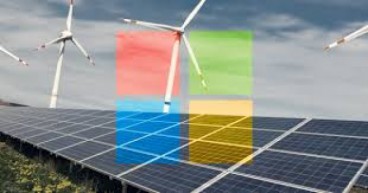
The biggest solar power deal in US corporate history has just been signed
Apr, 13, 2018 | NewsMicrosoft is going even greener, investing in solar energy to power its data centers Microsoft is g...
Researchers developed AI-based algorithms for real-time structural assessment of bridges
Sep, 26, 2023 | NewsBridges play a crucial role in India's infrastructure, with approximately 13,500 of them spread acr...
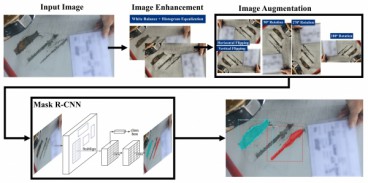
Artificial Intelligence tool identifies wind turbines defects
Mar, 04, 2021 | NewsScientists have developed a new method based on Artificial Intelligence (AI) to detect defects in th...
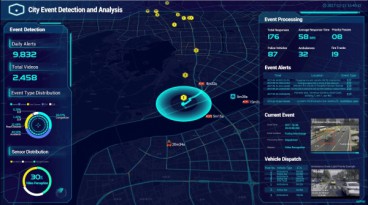
Alibaba's artificial intelligence system to alleviate traffic
Feb, 15, 2019 | NewsA sophisticated artificial intelligence (AI) system has been delivered to address traffic issues in...

New open source tool to evaluate buildings’ environmental impact
Aug, 15, 2018 | NewsAn open source computing tool that is capable of calculating CO2 emissions in every phase of a build...
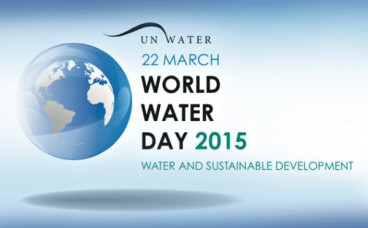
March 22nd is World Water Day!
Mar, 22, 2015 | NewsSince 1993, the United Nations has designated March 22nd of each year as World Water Day, a day dedi...
Trending

Taipei 101’s impressive tuned mass damper
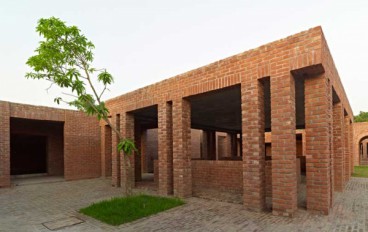
Characteristics of Load Bearing Masonry Construction

China Completes World’s Longest Expressway Tunnel, Redefining Connectivity

The Line at Neom faces feasibility reassessment while construction continues

The Billion-Dollar Airport Boom: 2025 Megaprojects Shaping the Skies

World's longest expressway tunnel to link northern and southern Xinjiang


